So, you’re thinking about therapy? Great! Taking that first step is a big deal, and it’s totally normal to feel a bit overwhelmed by all the options out there. Two terms you’ve probably heard tossed around are “psychotherapy” and “cognitive behavioral therapy,” or CBT. But you’re left wondering: “What is the Difference Between Psychotherapy and Cognitive Behavioral Therapy?” And how do you know which one is right for you? Let’s break it down.
Understanding Psychotherapy

Psychotherapy, often simply called “therapy,” is a broad term that encompasses a variety of therapeutic approaches aimed at improving an individual’s mental health and well-being. Think of psychotherapy as an umbrella under which numerous therapy types, including CBT, reside.
Key Aspects of Psychotherapy:
- Holistic Approach: Psychotherapy addresses a wide range of mental health issues, including depression, anxiety, trauma, relationship problems, and more. It’s designed to explore and understand emotions, thoughts, behaviors, and past experiences.
- Variety of Techniques: Different therapists might use different techniques, such as psychodynamic therapy, humanistic therapy, or integrative therapy. Each of these has its own methods and focuses, but all aim to help individuals understand their feelings and change troubling behaviors.
- Long-Term Focus: Psychotherapy often involves a longer-term commitment. Sessions can span weeks, months, or even years, depending on the individual’s needs. It allows for deep exploration and gradual change.
- Building Insight: One of the main goals is to help individuals gain insight into their lives, understand their emotions and behaviors, and work through their problems in a supportive environment.
What is Cognitive Behavioral Therapy (CBT)?
Cognitive Behavioral Therapy is a specific type of psychotherapy that is highly structured and focused on the present. Developed by Aaron Beck in the 1960s, CBT is based on the concept that our thoughts, feelings, and behaviors are interconnected and that changing negative thought patterns can lead to changes in feelings and behaviors.
Key Features of CBT:
- Goal-Oriented and Structured: CBT is typically short-term, with a clear structure and specific goals. It’s often used to treat a particular issue, such as anxiety, depression, or phobias, and involves a set number of sessions.
- Present-Focused: Unlike some forms of psychotherapy that delve deeply into past experiences, CBT focuses on the here and now. It addresses current problems and looks for practical solutions.
- Evidence-Based: CBT is one of the most researched and evidence-supported forms of therapy. Studies have shown its effectiveness in treating a variety of mental health conditions.
- Active Participation: Clients are often given homework and exercises to practice outside of therapy sessions. This active participation helps reinforce what is learned during therapy and promotes real-life application.
- Changing Thought Patterns: The core of CBT is identifying and challenging negative or distorted thought patterns (cognitive distortions) and replacing them with more realistic and positive ones. This process helps alter the resulting emotional and behavioral responses.
At Elysian Psychological Services, our Arlington Behavior Therapy experts will tailor their approach according to your needs to ensure the best treatment for you. Reach out to our experts now to get started!
Comparing Psychotherapy and CBT
While CBT is a form of psychotherapy, it differs significantly from other types in several ways. Let’s compare them in more detail.
Scope and Focus
- Psychotherapy: Broad and holistic, addressing a wide range of emotional and psychological issues. It often involves exploring past experiences to understand present behaviors and emotions.
- CBT: Narrower and more focused, concentrating on specific issues and current problems. It’s about understanding and changing negative thought patterns to influence behavior and emotions.
Time Frame
- Psychotherapy: This can be a long-term process, potentially lasting years. The pace is generally slower, allowing for deep exploration and gradual change.
- CBT: Typically short-term, often around 12 to 20 sessions. It’s structured with a clear beginning, middle, and end, aimed at achieving specific goals within a set time frame.
Techniques and Methods
- Psychotherapy: Utilizes a variety of techniques depending on the therapist’s approach, including talking, dream analysis, free association, and exploring relationships and experiences.
- CBT: Uses specific techniques like cognitive restructuring, exposure therapy, and behavioral activation. Clients are also given practical exercises and homework to apply what they’ve learned.
Therapist’s Role
- Psychotherapy: The therapist acts as a guide, helping clients explore their thoughts and feelings. The relationship between therapist and client is often central to the process.
- CBT: The therapist is more of a coach, providing tools and strategies to change thought patterns and behaviors. The focus is on teaching skills that clients can use independently.
Which One is Right for You?
Choosing between psychotherapy and CBT depends on various factors, including the nature of the issue you’re facing, your personal preferences, and your therapy goals. Here are some considerations:
Consider Psychotherapy If:
- You have deep-rooted issues that may stem from past experiences.
- You’re looking for a holistic approach to understanding your emotions and behaviors.
- You prefer a less structured, more exploratory therapy style.
- You’re prepared for a potentially longer-term commitment.
Consider CBT If:
- You have a specific issue like anxiety, depression, or a phobia that you want to address.
- You’re looking for a short-term, structured approach with clear goals.
- You want practical tools and strategies to manage your thoughts and behaviors.
- You prefer a more active, hands-on approach with exercises and homework.
Want to know more about “What is Behavioral Activation Therapy for Depression?” Visit our blog page today!
Real-Life Applications and Effectiveness
Both psychotherapy and CBT have been shown to be effective in treating a variety of mental health conditions. However, their effectiveness can vary depending on the individual and the specific issue.
Psychotherapy:
- Particularly effective for individuals with complex, long-standing issues.
- Beneficial for those looking to understand themselves better and work through deep emotional pain.
- Can provide ongoing support and personal growth.
CBT:
- Highly effective for treating anxiety disorders, depression, PTSD, OCD, and more.
- Often preferred for its structured, goal-oriented approach and short-term nature.
- Provides practical tools that clients can continue to use long after therapy ends.

Final Thoughts
Understanding the difference between psychotherapy and Cognitive Behavioral Therapy is essential for making informed decisions about your mental health treatment. Both have their unique strengths and can be incredibly effective in helping individuals lead healthier, happier lives.
If you’re unsure which approach is right for you, consider talking to a mental health professional who can guide you based on your specific needs and goals. Remember, the most important thing is to seek help and take that first step toward improving your mental well-being. Whether you choose psychotherapy or CBT, you’re making a positive choice for your future.
So, what do you think? Does one approach resonate more with you? The journey to mental wellness is personal, and finding the right path can make all the difference. Understanding the difference between psychotherapy and Cognitive Behavioral Therapy (CBT) can significantly impact your mental health journey. At Elysian Psychological Services, we offer expert guidance to help you choose the right approach tailored to your needs. Our compassionate therapists are here to support you every step of the way. Don’t wait to enhance your well-being; schedule a consultation with us today. Start your path to a healthier mind with Elysian Psychological Services.


